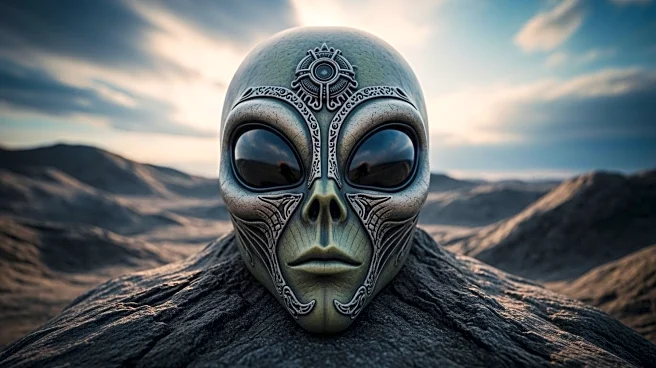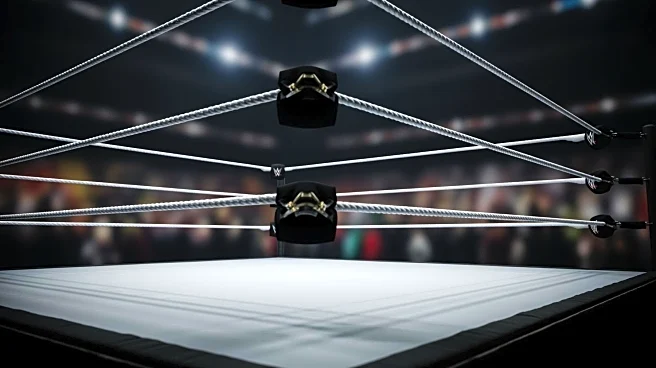What's Happening?
Dan Trachtenberg's new film, 'Predator: Badlands,' presents a unique take on the Predator franchise by focusing on a young Yautja named Dek, played by Dimitrius Schuster-Koloamatangi. The film explores Dek's struggle to prove himself as a top hunter to his father
and clan. Set on the dangerous planet Genna, Dek's journey is marked by personal tragedy and the challenge of hunting the formidable Kalisk. The film diverges from traditional Predator narratives by emphasizing Dek's personal growth and his formation of a new 'family' with a synthetic named Thia and a creature named Bud. This narrative shift highlights themes of self-acceptance and the rejection of societal expectations.
Why It's Important?
'Predator: Badlands' represents a significant departure from the typical portrayal of Predators as mere hunters. By focusing on Dek's internal journey and his relationships, the film adds depth to the Predator lore, potentially broadening its appeal beyond action and horror fans. This character-driven approach may attract audiences interested in stories of personal growth and acceptance. Additionally, the film's exploration of themes like family and belonging could resonate with viewers, offering a fresh perspective on the Predator franchise. The film's release could influence future entries in the series to explore more nuanced narratives.
What's Next?
As 'Predator: Badlands' hits theaters, its reception will likely influence the direction of future Predator films. If successful, it could encourage filmmakers to continue exploring character-driven stories within the franchise. The film's themes of self-discovery and acceptance may also inspire similar narratives in other science fiction and action films. Additionally, the film's portrayal of the Yautja as complex beings rather than one-dimensional hunters could lead to a reevaluation of the franchise's characters and their roles in future stories.
Beyond the Headlines
The film's focus on Dek's personal journey and his rejection of traditional Yautja values raises questions about cultural identity and the pressures of conformity. By choosing to form his own 'family' with Thia and Bud, Dek challenges the notion of predetermined roles and expectations. This narrative choice highlights the importance of individual agency and the value of diverse relationships. The film's exploration of these themes may prompt discussions about cultural norms and the importance of self-acceptance in a broader societal context.
















